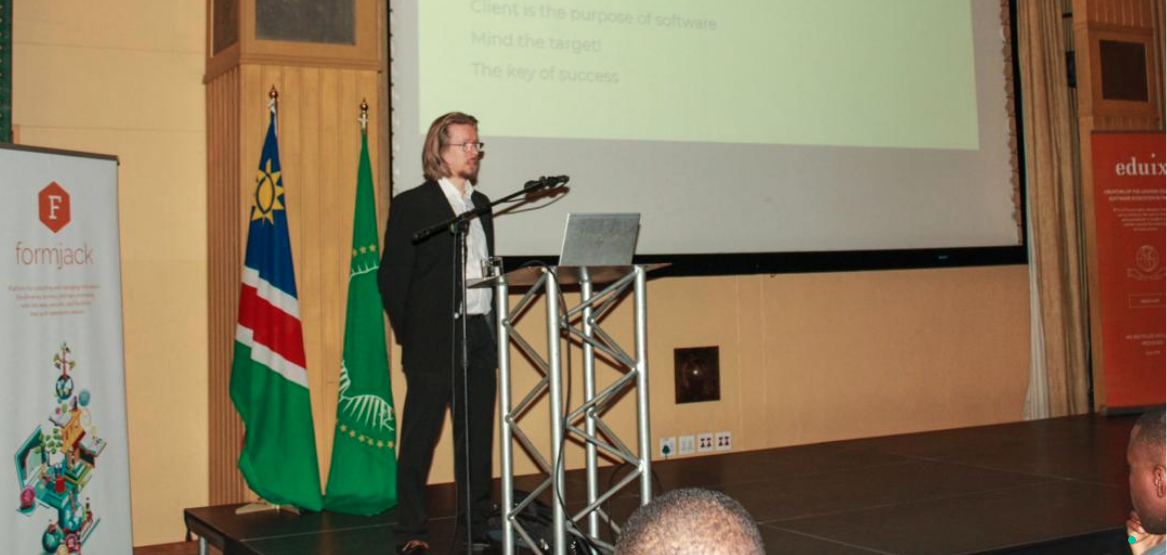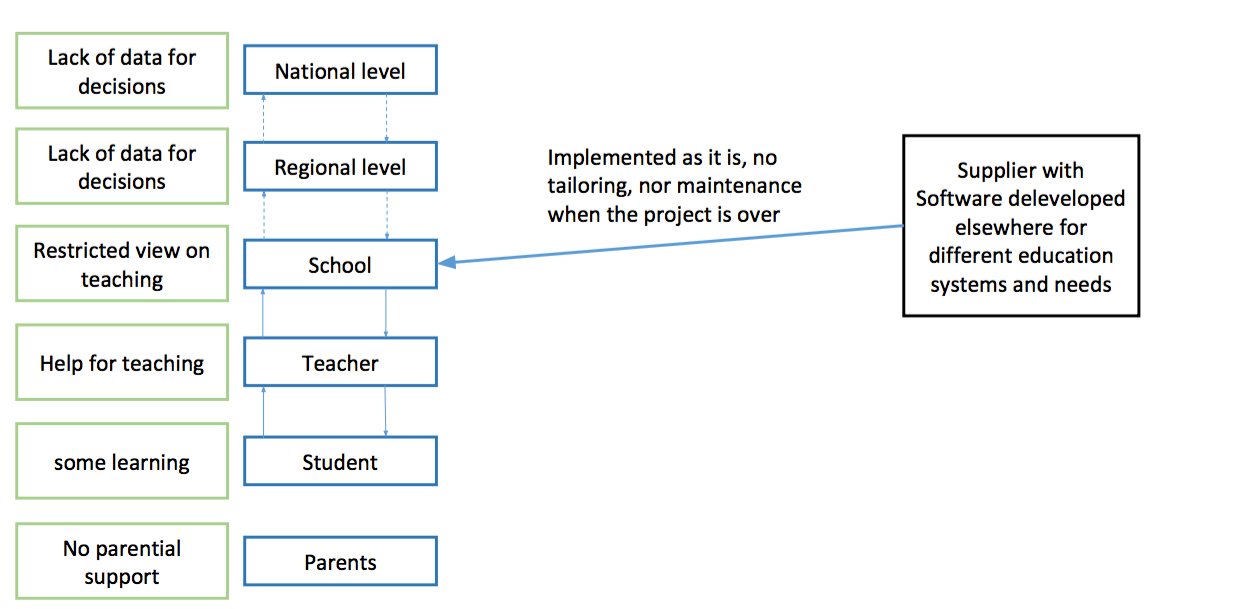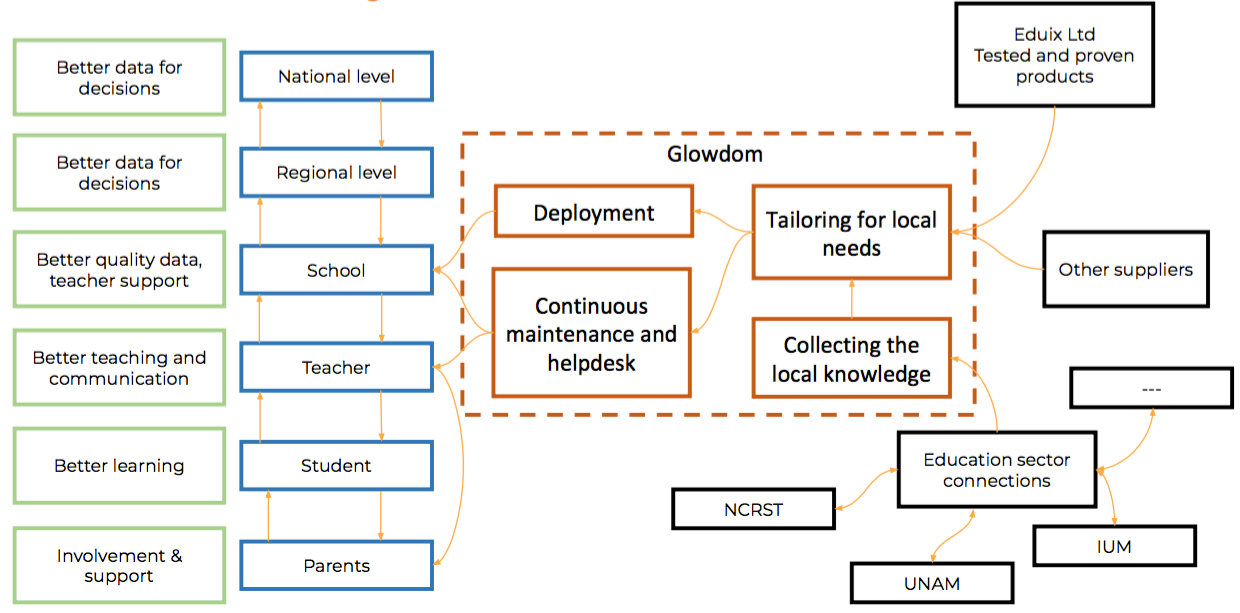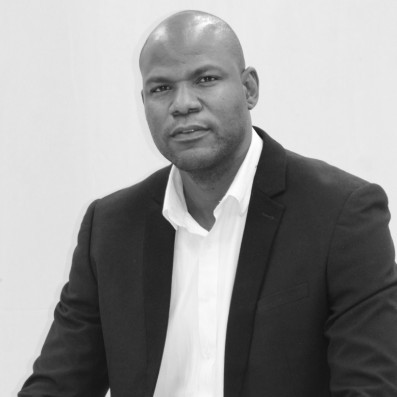Digital transformation in education and mindset

The co-operation project with Haaga-Helia, Eduix Ltd and Glowdom has progressed to first concrete pilot tests. During February, Altti Lagstedt had a very busy time in Namibia, together with Sebulon David of Glowdom. They met interesting groups, refined the Ahaa-ecosystem model and planned the pilot tests of both FormJack and Wihi -products with education representatives. They also attended the Python conference “PyCon Namibia 2020”, where Altti was a keynote speaker and Sebulon had a “light talk” presentation.
One of the main achievements of the week was refining Ahaa-ecosystem. Since the software development cluster is still small inside Namibia, it has been typical that education systems have been acquired from abroad during the last decades, according to the model represented in Figure 1.

Figure 1. The traditional software implementation model
Even if this model is simple, it has shown to have certain structural challenges and problems:
- Purchased software has been taken in to use “as it is”, i.e. the software was not suited or tailored to local needs – nor during the implementation, neither later, during curriculum changes for instance.
- There haven’t been local support or help desk to answer the questions and organizing training. There hasn’t been local maintenance either, so, if a software supplier abroad loses their interest (or goes bankrupt), the software has been abandoned and sooner or later something breaks and the system becomes useless.
To be a really useful and working ecosystem, it is vital to address such challenges and problems: systems have to be suited to local needs and maintained properly. There has to be someone local who is able to collect requirements from all stakeholders, do tailoring in the implementation phase, make changes whenever is needed (for example, when curriculum changes), and act as a helpdesk and train the users for the system. In addition, there has to be some guarantee for continuity: if the original company developing the software loses its interest or goes bankrupt, it has to be possible for the local company to continue to maintain, update and further develop the software. These considerations are represented in the Ahaa-ecosystem model (see Figure 2).

During this cooperation project, we concentrate on the products of Eduix Ltd, but the idea is that the ecosystem is open for other software developers as well, as long as they are ready to follow the same rules. This Ahaa-ecosystem is planned to be an efficient way to get rid of “project tourism”, i.e. projects done only for outside funding without any kind of economical or other kinds of sustainability. In Ahaa-ecosystem there is a local company, which benefits mainly from the maintenance and helpdesk -phase, and this brings a clear economic sustainability aspect to the ecosystem. In addition, when the localization and tailoring are the local company’s responsibility, it helps to grow the software development cluster in Namibia: Glowdom is not planning to do all by themselves, but they are actively looking for partners inside Namibia. Even though in this project we concentrate on the education sector, Ahaa-ecosystem is not bound to education solutions only, it can be applied in other sectors as well, for example in healthcare, agriculture, transportation, and governance.
Mr. Sebulon David, CEO, Glowdom
Dr. Altti Lagstedt, Senior lecturer, Haaga-Helia
Author
-

Sebulon founded Glowdom, a tech company aimed at revolutionizing the education sector through the use of technology and data.
View all posts
● US Mandela Washington Fellow for young African leaders 2015
● Namibia Business Hall of Fame Laureate 2022
● North of Namibia Director for US Embassy Academy for Women Entrepreneurs 2021 - 2023
● Ambassador for UNESCO/SAP Africa Code Week, the Africa Code Challenge, and the UNESCO/CODEMAO Africa-Asia Youth Coding Initiative 2018 - 2023 Creator of “ELYAMBALA.NAMIBIA”, Sebulon encourages individuals to break free from limiting beliefs and to continuously pursue personal and professional growth.
